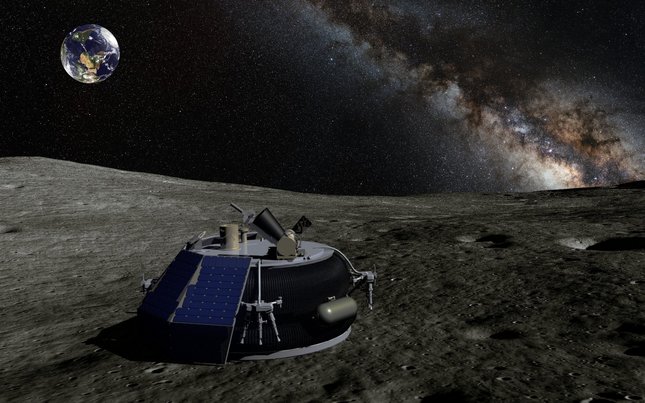 Moon Express plans to land a payload on the Moon in 2017Moon Express
Moon Express plans to land a payload on the Moon in 2017Moon ExpressTipped to be a giant leap for commercial space travel, Moon Express has been granted permission to send a small robotic lander to explore the Moon's surface; this will happen sometime in the autumn of 2017.
A booming commercial space industry will be looking on keenly, as the likes of SpaceX, run by Elon Musk, have begun to show how they can undercut and out-think Nasa and other government agencies.
Moon Express says the historic ruling will create the dawn of "a new era of ongoing commercial lunar exploration and discovery, unlocking the immense potential of the Moon's valuable resources."
"We are now free to set sail as explorers to Earth's eighth continent, the moon, seeking new knowledge and resources to expand Earth's economic sphere for the benefit of all of humanity," said Bob Richards, co-founder and chief executive of Moon Express. The company's first mission is expected to cost less than $10m, a fraction of what Nasa used to spend on getting to the Moon.
While the US Federal Aviation Authority (FAA) has approved the payload Moon Express plans to send, it cannot prepare for blastoff just yet, as more checks will need to be carried out on the rockets chosen for the mission, a stage known as gaining a 'launch license'.
Where robots go today, humans will follow tomorrow
Once the company proves it can safely send cargo to the Moon, it will begin to explore ways to make a profit from the Moon.Moon Express has plans to create a space station on the Moon, where rockets can refuel mid-flight, before heading elsewhere or returning back to Earth having mined rare substances, or even given space tourists time to walk on the moon's surface.
Moon Express chairman Naveen Jain said: "In 15 years, the Moon will be an important part of Earth's economy, and potentially our second home. Imagine that."
As well as bringing commercial space flight a step closer to landing on the Moon, the green light also makes Moon Express the front runner to win Google's $20m (£15m) Lunar X Prize, which will be given to the first private company to land a robot on the Moon, then travel 500 metres and transmit pictures and video back to Earth, without any government funding.
The private space industry is already launching satellites and sending payloads to the International Space Station, while SpaceX plans to launch a mission to Mars as soon as 2018.
0 Response to "Silicon Valley startup brings Moon tourism a giant leap closer"
Post a Comment